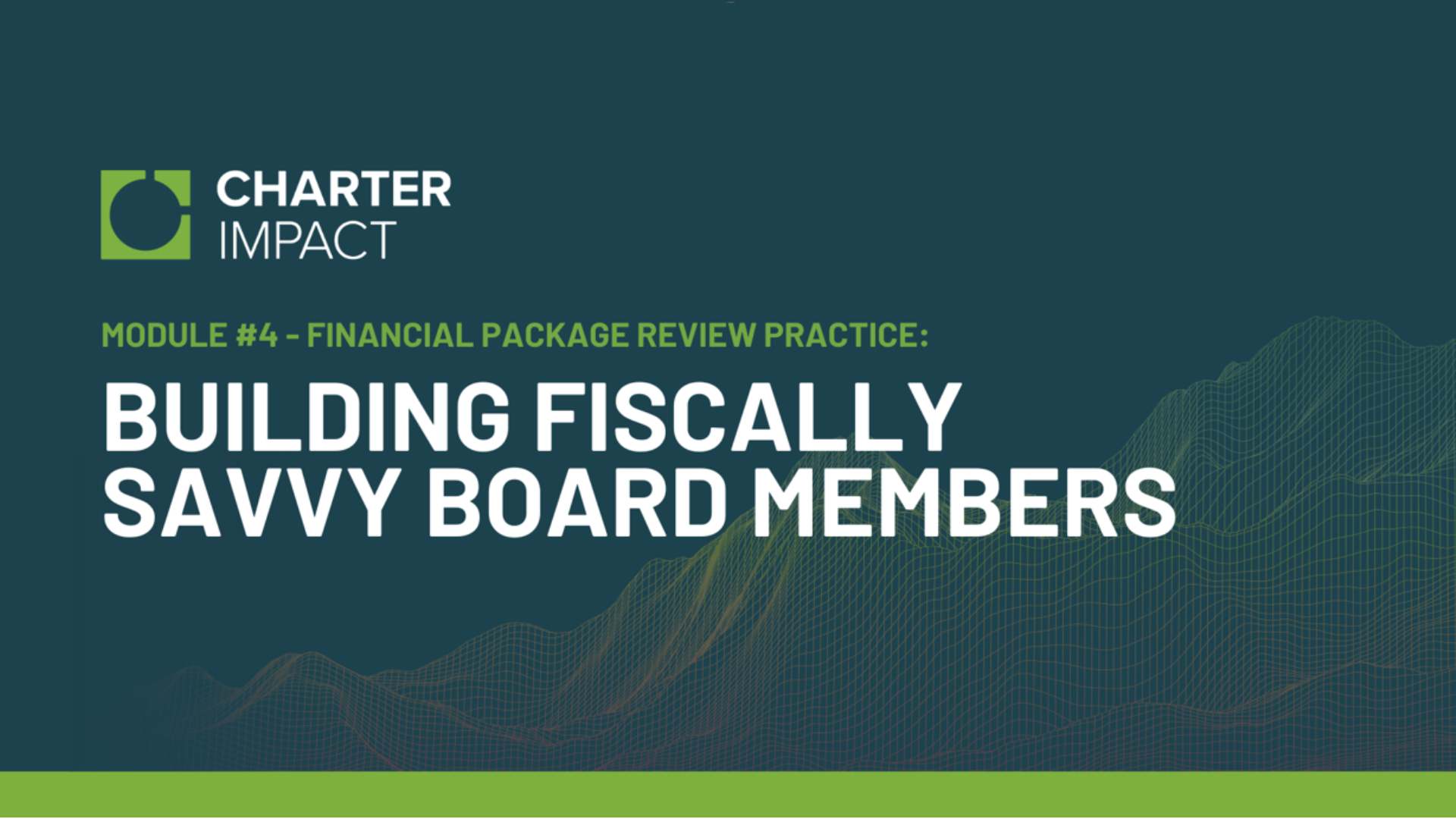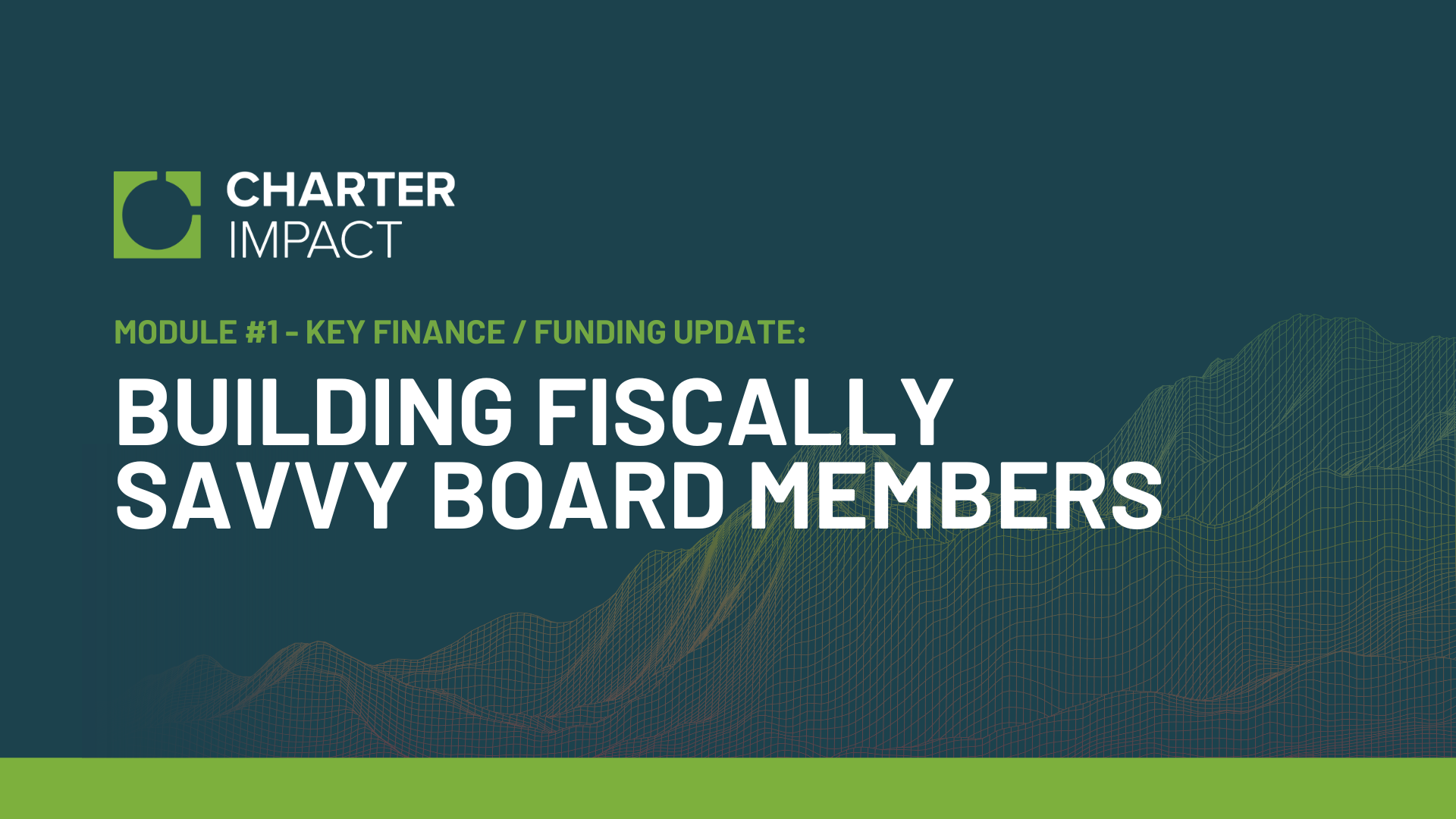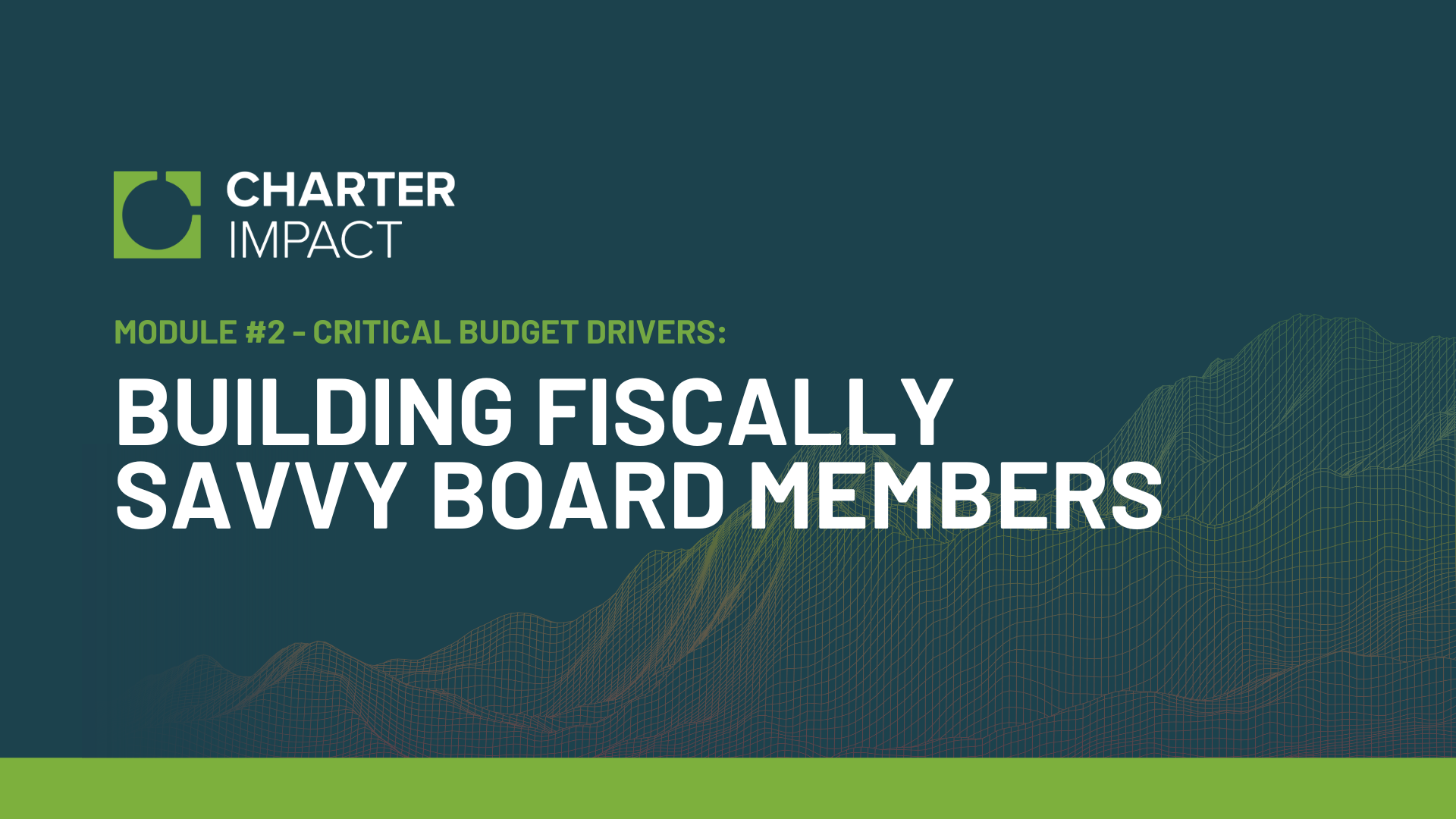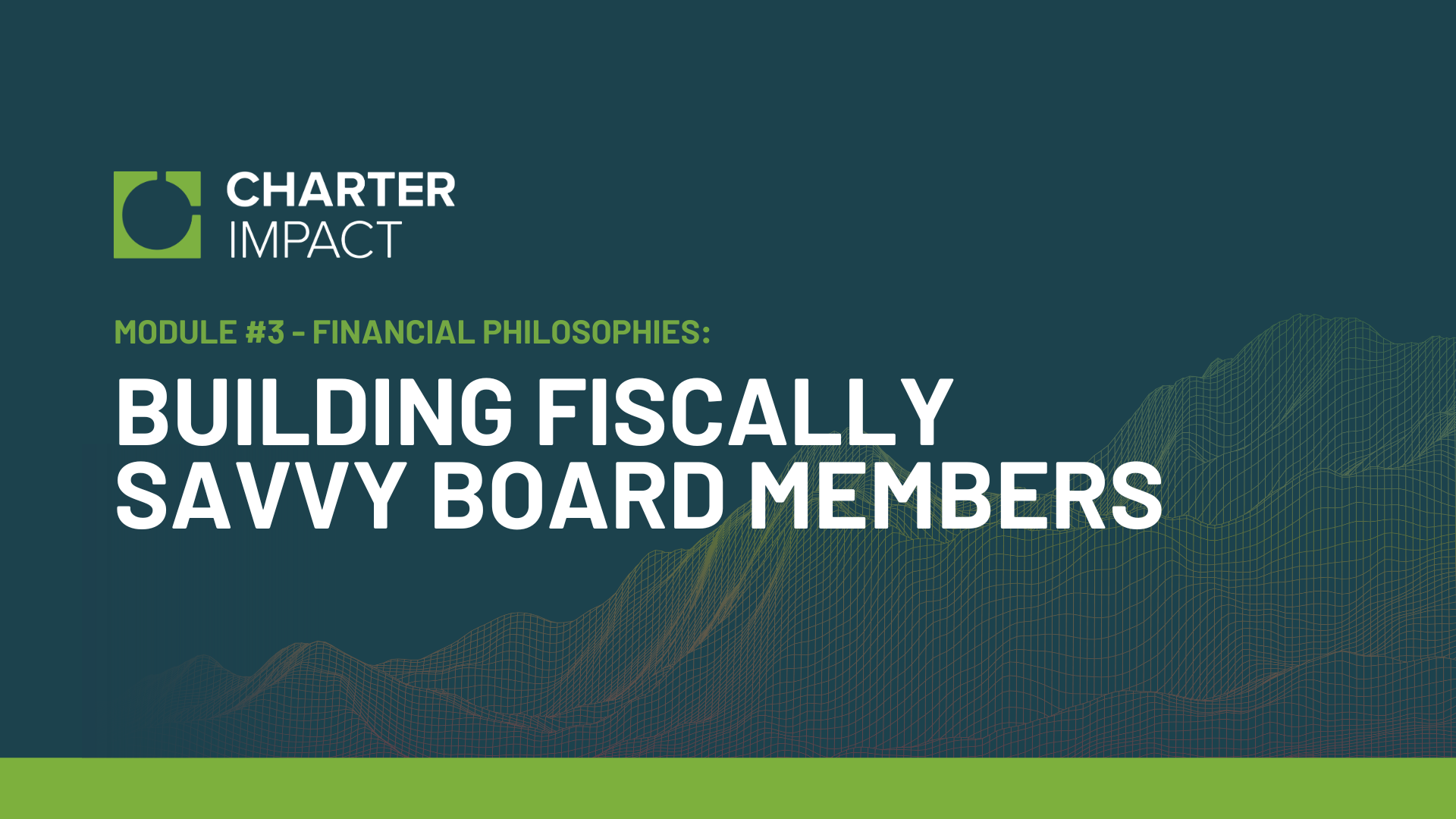Building Fiscally Savvy Board Members
Module #4 | Building Fiscally Savvy Board Members
Welcome to the Building Fiscally Savvy Board Member series! In this module, we're diving into a sample financial package to help you understand key components of charter school finance. We'll cover everything from cash flow statements and budget vs. actual comparisons to balance sheets and compliance reports. You'll gain practical insights into analyzing financial documents, identifying trends, and asking the right questions to keep your school on a path to fiscal health.
By the end of this module, you'll feel more empowered and confident in your ability to make informed financial decisions for your school. Let's dive in and strengthen your board leadership today!
Cash flow can vary significantly throughout the year, especially in charter schools dependent on public funding. Look for periods where cash dips below expected levels and ask about contingency plans, such as short-term loans or deferred payments, to ensure operational stability.
Question 1 of 5
1. What is the purpose of the executive summary in a financial package?
A) To list all payments made B) To provide a high-level overview of the school's financial status C) To detail the school's expenses only D) To highlight compliance reports2. If enrollment trends show a decline, what should a board member ask?
A) What are the school's new technology needs? B) How can we increase teacher salaries? C) What is the executive team doing to counteract the decline? D) How much cash is in the bank?3. What does the 'budget vs. actual' comparison help board members understand?
A) Variances between expected and actual financial performance B) The school's academic achievements C) The number of new staff hires D) Compliance requirements4. Why might accounts payable show an amount that is overdue?
A) The school wants to save money B) There might be a dispute over an invoice C) The executive director requested a delay D) The school has excess cash5. What are some consequences of not meeting debt covenants, like maintaining a 5% fund balance reserve?
A) The school will receive a penalty fee B) The bond could be called, requiring immediate repayment C) The school will get a lower interest rate D) No consequences exist




